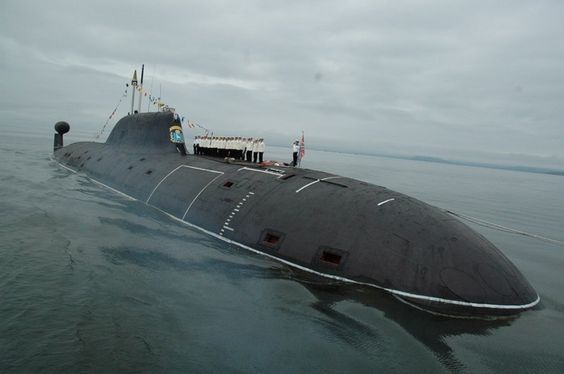In 2019, India signed a lease contract with Russia for the procurement of a Project 971 Schuka-B (Akula-class) nuclear submarine – the Samara.
The submarine will be transferred to the Indian Navy in 2025 for 10 years and will receive the name “Chakra-3”.
Before being sent to India, the nuclear submarine will undergo modernization at the plant in Severodvinsk, where Indian equipment, in particular communication systems, will be installed on it under the $3.3 billion contract.
As part of the Indian Navy, Samara will replace the Project 971 nuclear submarine, which has been on lease in India since 2011 – the Nerpa, or as it is called in the Indian Navy – the INS Chakra.
The Project 971 nuclear submarine Samara will replace the INS Chakra, but not before 2025, until then the INS Chakra’s lease contract will be extended.
In November 2018, India declared its first indigenous nuclear-powered submarine, armed with nuclear-tipped ballistic missiles, the INS Arihant successfully carried out its first “deterrence patrol.”
The over 8,000-ton INS Chakra has also served as a training platform for the 6,000-ton INS Arihant, which is to be followed by three more nuclear-powered submarines, indigenously built in India.
The Indian Navy currently operates fourteen diesel powered submarines and two nuclear powered submarines. India’s submarine fleet is based at two locations: Visakhapatnam on the east coast and Mumbai on the west coast.
Back in 2017, there was a complication that jeopardized any future leasing of such equipment to India by Russia. Kommersant reported that Moscow suspected that Delhi allowed US Navy representatives on an inspection on board the INS Chakra nuclear submarine.
Russia had to make repairs on the nuclear submarine, after an incident that damaged it in October 2017. The reason was because the Russian side was concerned that India was violating its lease agreement.
Indian media aired public reports in early October 2017 that indicated that INS Chakra had suffered damage while entering Visakhapatnam harbor, including a large hole in the sonar dome in the bow. A Russian team visited India for a joint investigation, which led to the submarine being dry docked for repairs at a cost of ₹125 crore ($20 million) to fix the damage
Allowing US or NATO experts on board the Russian nuclear submarine was prohibited as per the lease. It includes a clause that called for a Russian naval officer to be aboard the leased sub at all times to prevent such snooping and to provide technical assistance.
The Project 971 (Akula-class) nuclear submarine incorporates a double hull system composed of an inner pressure hull and an outer “light” hull. This allows more freedom in the design of the exterior hull shape, resulting in a submarine with more reserve buoyancy than its western analogs.
The Akula Class carry up to 12 Granit submarine-launched cruise missiles. The missiles are fired from the 533mm torpedo launch tubes. Granit (Nato designation: SS-N-21 Sampson) has a range of about 3,000km and delivers a 200kt warhead.
The Akula II submarines are 110m long and displace up to 12,770t. They have a maximum speed of 35kt submerged and a maximum diving depth of 600m.
MORE ON THE TOPIC:







